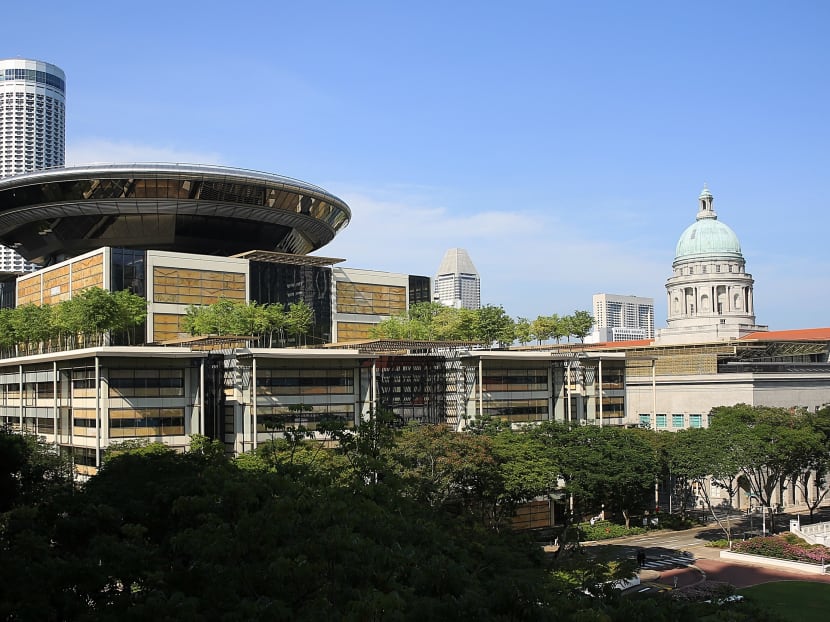Penal Code review committee calls for law on attempted suicide to be scrapped
SINGAPORE — Proposing to repeal the law that makes it a crime to attempt suicide, the committee tasked to review the Penal Code noted that “there is a growing recognition that treatment, not prosecution” is the appropriate response for such cases.

The committee tasked to review the Penal Code has proposed repealing the law which makes it a crime to attempt suicide.
SINGAPORE — Proposing to repeal the law that makes it a crime to attempt suicide, the committee tasked to review the Penal Code noted that “there is a growing recognition that treatment, not prosecution” is the appropriate response for such cases.
The criminal justice system is not suited to manage these cases, said the committee in its report released on Sunday (Sept 9). It added that repealing section 309 would allow these individuals to be “more appropriately managed by the healthcare and social assistance systems”.
Stating that society remains opposed to suicide, the committee pointed out that the law — which is a 19th century provision — exists “because it was thought that criminalisation was the best way to deter suicide attempts”.
Under the current law, attempting suicide is an offence punishable by up to a year’s jail, a fine, or both. But the committee said that prosecutions are “rare”. It noted that between 2013 and 2015, an average of 0.6 per cent of reported cases resulted in prosecution each year. In 2015, 837 persons were arrested out of 1096 reported cases of attempted suicide.
Decriminalising attempted suicide is one of the suggestions made by the committee in its sweeping review of the Penal Code. It is recommending a total of 169 changes, with a key focus on boosting legal protection for women and vulnerable people such as children, the disabled and domestic helpers.
The committee is co-chaired by Minister in the Prime Minister’s Office Indranee Rajah, and Mr Amrin Amin, Senior Parliamentary Secretary for Home Affairs and Health.
While the committee is proposing that the law be repealed, it stressed that abetting attempted suicide “must remain a crime”.
“While the person who attempted suicide may not be morally culpable, the abettor who voluntarily facilitates in the ending of a life should,” said the committee.
It added that internationally, most countries only criminalise the abetment of suicide, and not the act of attempted suicide. According to the World Health Organisation’s 2014 World Suicide Report, only 25 of the 192 countries and states surveyed have laws and punishments for attempted suicide.
Singapore, along with Malaysia and Bangladesh, is among the minority of states in which attempting suicide is illegal and punishable. It is not a crime in the United Kingdom, Canada, Australia, New Zealand, and most of Europe.
In proposing for the law to be repealed, the committee also proposed that the Government amend other legislations — the Police Force Act, the Mental Health (Care and Treatment) Act and the Criminal Procedure Code — to strengthen its response to the issue.
The recommendations include:
- Empowering police officers to immediately intervene to prevent harm or loss of life.
- Empowering the police to arrest and bring the individual who attempted suicide, and who is believed to be dangerous to himself or others, to a medical practitioner for assessment.
- Giving medical practitioners and the courts powers to order that the individual be detained at a psychiatric institution for treatment if it is necessary for the individual’s safety or to protect others.
- Empower the police to seize evidence, as this would be needed if the individual dies and a Coroner’s Inquiry is launched.
Over the years, there have been calls by civil society groups to decriminalise attempted suicide in Singapore.
For instance, the Association of Women for Action and Research (Aware) said that criminalising suicide could further distress those who need help. Instead, greater mental health support should be given to those experiencing suicidal thoughts, as well as ramping up awareness and training on how to assist such individuals, said the group.
Speaking to reporters after a briefing on the review findings on Friday (Sept 7), Home Affairs and Law Minister K Shanmugam emphasised that repealing the law does not mean the Government is going soft on the issue.
He said: “Because if you’re intending to kill yourself, you’re not really going to worry about whether you’re going to jail or not, if you fail. Because you assumed that you’re not going to be living anymore.
“But abetting someone to commit suicide is still an offence. The people who can be deterred will continue to be deterred. And it’s more appropriate for a person who is going to attempt suicide, I think to be given treatment.”






